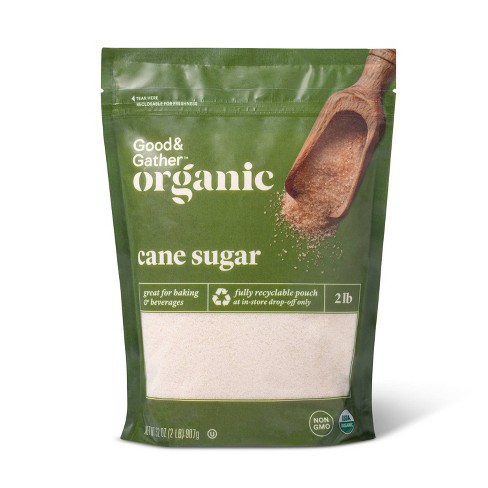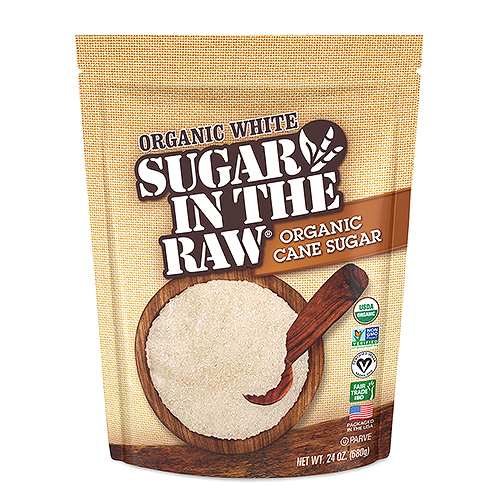An In-depth Review of the Health and Economic Ramifications of Walking Cane Sugar Processing on Local Areas
Cane sugar processing plays a pivotal role fit the financial landscape of regional areas, offering employment possibility and boosting supplementary industries. However, the wellness ramifications associated with high sugar consumption can not be overlooked, as they add to rising prices of weight problems and diabetic issues. This nuanced vibrant welcomes a vital assessment of just how areas can optimize economic gains while dealing with journalism wellness obstacles they face. The exploration of academic initiatives and lasting practices might simply hold the secret to reconciling these contrasting passions. What approaches might areas execute to achieve this equilibrium?
Economic Benefits of Walking Cane Sugar Processing
Cane sugar processing offers significant economic advantages that prolong past the instant agricultural sector. The growing and handling of sugarcane produce various job opportunities, from farming to manufacturing and distribution. This work generation not only supports neighborhood economic climates yet likewise promotes area advancement by providing secure income sources for households.
In addition, the sugar industry boosts secondary organizations, consisting of transportation, tools supply, and product packaging solutions (Cane Sugar Processing). As these sectors expand, they add to an extra durable financial structure, enhancing general neighborhood strength. The export potential of processed walking stick sugar even more amplifies financial benefits, placing regions as competitive gamers in international markets
Investment in contemporary processing facilities can cause increased productivity and effectiveness, thereby decreasing waste and maximizing resource usage. This change not just profits the local economic climate but likewise supports sustainability initiatives by decreasing environmental impacts.
In addition, the profits generated from cane sugar handling can be reinvested in neighborhood infrastructure, education, and health care, promoting holistic area growth. In general, the financial benefits of walking stick sugar processing are multifaceted, offering a structure for withstanding success in agricultural areas.
Health Threats Related To Sugar Consumption
Too much sugar consumption positions considerable health dangers that necessitate serious focus. High consumption of included sugars, especially from refined beverages and foods, has actually been linked to numerous wellness problems. Among one of the most pressing problems is weight problems, as sugary diets add to an enhanced calorie consumption without giving crucial nutrients. This extra can cause metabolic conditions, including kind 2 diabetes mellitus, which has come to be progressively prevalent in both youngsters and adults - Cane Sugar Processing.
Additionally, high sugar consumption is related to cardiovascular disease. Raised blood sugar level degrees can bring about insulin resistance, a forerunner to numerous heart-related concerns. In addition, sugar can have harmful results on dental wellness, leading to tooth cavities and gum tissue condition, as bacteria in the mouth flourish on sugar, generating acids that deteriorate tooth enamel.
Furthermore, emerging research recommends a possible web link between high sugar intake and psychological health and wellness disorders, such as depression and anxiousness. As areas come to grips with these wellness threats, it comes to be necessary to advertise recognition and urge healthier nutritional choices. Addressing sugar intake is essential not only for private wellness yet also for the total health of local communities, stressing the demand for thorough public health and wellness methods.
Ecological Influences of Sugar Production
Regularly ignored in discussions concerning sugar's ramifications is the considerable ecological effect of sugar production. The growing of sugarcane often requires extensive land use, causing deforestation, loss of biodiversity, and disruption of regional ecosystems. The conversion of forests and wetlands right into sugar plantations can lead to habitat destruction, threatening countless varieties and modifying ecological balance.
Furthermore, sugar production is resource-intensive, consuming significant quantities This Site of water for irrigation. This can bring about exhaustion of regional water sources, adversely influencing both farming practices and area access to tidy water. Additionally, making use of chemical fertilizers and pesticides in sugarcane farming can add to dirt degradation and water pollution, as overflow from these chemicals goes into neighboring rivers and lakes, influencing aquatic life and human wellness.
The ecological impact prolongs to the processing phase, where energy intake and waste generation more aggravate ecological issues. Air air pollution from melting sugarcane fields, together with greenhouse gas emissions, add to climate adjustment. Therefore, the environmental effects of sugar production warrant serious consideration, prompting stakeholders to adopt more lasting practices to minimize these adverse results on regional communities and areas.
Task Development and Neighborhood Growth
The ecological challenges posed by sugar production are often counteracted by its potential for financial benefits, particularly in task creation and community advancement. The cane sugar industry functions as a significant resource of employment in numerous backwoods, supplying tasks throughout numerous skill degrees, from agricultural labor to processing and distribution roles. This employment not only supports specific families yet additionally adds to the overall financial vitality of neighborhood areas.
Moreover, the facility of sugar handling centers stimulates supplementary organizations, such as transport solutions, devices supply, and upkeep carriers. As these services prosper, they create added tasks and bolster local economies. The profits generated from the sugar sector also results in boosted tax profits, which can be reinvested right continue reading this into area solutions such as education and learning, health care, and facilities development.
In addition, the sugar industry typically participates in area advancement campaigns, such as sustaining local institutions and health and wellness programs, thus enhancing the high quality of life for locals. By fostering strong area connections and promoting financial development, the walking cane sugar handling sector plays a crucial duty in uplifting regional populaces, making it a vital part of lasting development approaches in sugar-producing regions.
Balancing Health and Economic Development
In browsing the intricacies of walking stick sugar handling, a vital challenge lies in balancing health considerations with financial growth. The sugar sector substantially adds to regional economic situations by generating tasks, promoting relevant industries, and increasing tax earnings. Nonetheless, the wellness ramifications related to excessive sugar intake can result in chronic illness such as obesity, diabetes mellitus, and cardio issues, which can burden public wellness systems and decrease workforce productivity.

Moreover, regulative frameworks can play a critical duty in leading industry techniques towards even more lasting and health-conscious methods. By fostering cooperation between federal government bodies, health companies, and the sugar sector, neighborhoods can navigate the duality of wellness and financial development, guaranteeing that the benefits of walking cane sugar handling are equitably shared while prioritizing public health and wellness.
Verdict
To conclude, the handling of walking cane sugar presents both significant economic benefits and remarkable wellness threats for local areas. While it promotes job creation and stimulates regional development, the connected health and wellness concerns, specifically regarding obesity and diabetes, require a cautious balancing act. By advertising accountable consumption and investing in area education and sustainable practices, it is possible to take full advantage of financial benefits while decreasing negative health and wellness effects, consequently guaranteeing a much healthier future for neighborhood populations.
In addition, sugar can have harmful results on oral health, resulting in tooth cavities and periodontal disease, as microorganisms in the mouth grow on sugar, creating acids that wear down tooth enamel.
Attending to sugar usage is important not only for private health yet also for the general health of neighborhood areas, highlighting the need for extensive public wellness approaches.
Frequently neglected in discussions about sugar's implications is the substantial ecological influence of sugar production. The health see it here ramifications linked with too much sugar consumption can lead to chronic conditions such as excessive weight, diabetic issues, and cardio issues, which can worry public health and wellness systems and reduce labor force performance.
